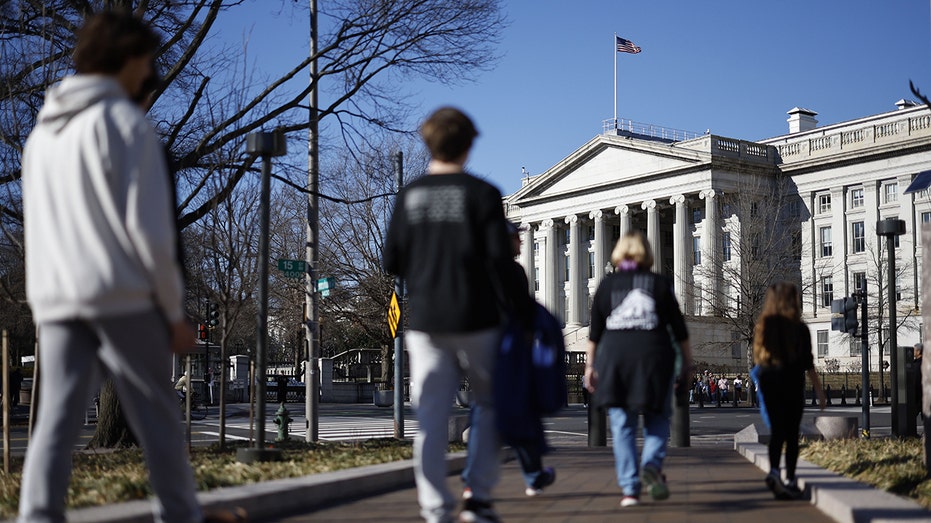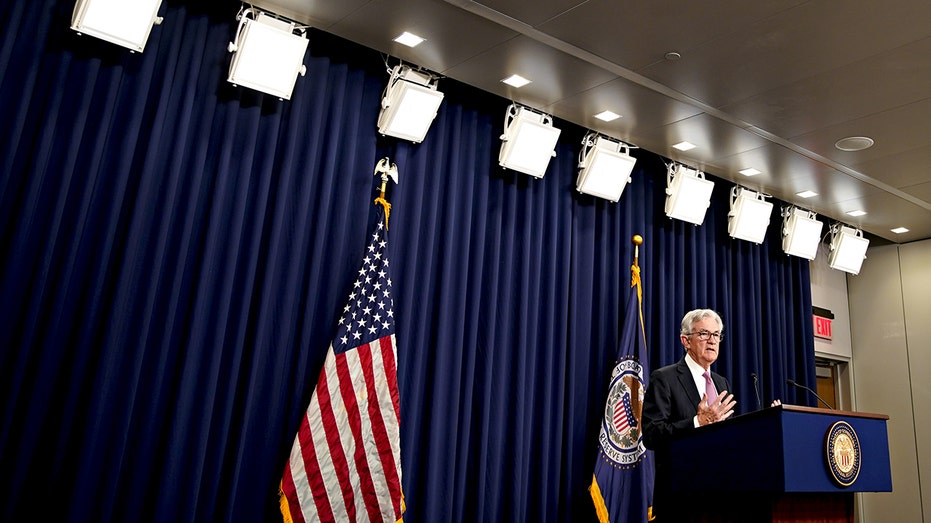Fed expects a 'mild' recession to begin later this year, meeting minutes show
Fed officials lowered their rate-hike expectations amid banking turmoil
Fed is near its terminal rate: Randal Quarles
Former Federal Reserve Vice Chair Randal Quarles discusses whether pressure on the banking system has abated and the Fed's interest rate strategy on 'Cavuto: Coast to Coast.'
Recent upheaval within the banking system is likely to drag the U.S. economy into a recession later this year, according to the Federal Reserve.
Minutes from the U.S. central bank's March 21-22 meeting released on Wednesday showed staff members believe a downturn is imminent, following the collapse of Silicon Valley Bank and Signature Bank in early March.
"Given their assessment of the potential economic effects of the recent banking-sector developments, the staff’s projection at the time of the March meeting included a mild recession starting later this year, with a recovery over the subsequent two years," the minutes said.
HOW THE BANKING CRISIS COULD HAMMER SMALL BUSINESSES

Pedestrians walk near the U.S. Treasury building in Washington, D.C., on Dec. 30, 2022. (Ting Shen/Bloomberg via Getty Images / Getty Images)
Economic projections laid out following the meeting indicated that economic growth will slow sharply this year and that unemployment will march higher to a rate of 4.5% as rates hikes bring the U.S. to the brink of a recession. The Fed expects the jobless rate to remain elevated in 2024 and 2025 as steeper rates continue to take their toll by pushing up borrowing costs.
Despite concern over a possible recession this year, Fed officials plowed ahead with their campaign to fight inflation. Officials voted at the meeting to raise the benchmark interest rate a quarter percentage point to a range of 4.75% to 5% and signaled that another rate increase is on the table in May, although they noted that future hikes will ultimately hinge on incoming data reports.
Several Fed officials questioned whether to pause the rate hikes and watch to see what happened within the banking system; however, they agreed to vote for another rate increase "because of elevated inflation, the strength of the recent economic data, and their commitment to bring inflation down to the Committee’s 2 percent longer-run goal."
Meeting minutes show that officials lowered their expectations for rate hikes this year in the wake of the banking crisis that threatened to more severely tighten credit for U.S. households and amid signs that inflation is beginning to moderate.
JAMIE DIMON WARNS BANKING CRISIS HAS RAISED ODDS OF RECESSION

Jerome Powell, chairman of the U.S. Federal Reserve, speaks during a news conference following a Federal Open Market Committee meeting in Washington, D.C., on May 4, 2022. (Al Drago/Bloomberg via Getty Images / Getty Images)
"Many participants noted that the likely effects of recent banking-sector developments on economic activity and inflation had led them to lower their assessments of the federal funds rate target range that would be sufficiently restrictive," they said.
Still, officials stressed the need to "retain flexibility and optionality in determining the appropriate stance of monetary policy given the highly uncertain economic outlook."
Inflation showed welcome signs of cooling in March as the cost of gasoline declined, but core prices pointed to strong underlying price pressures that are still bubbling beneath the surface.
The Labor Department on Wednesday reported that the consumer price index, a broad measure of the price for everyday goods including gasoline, groceries and rents, rose 0.1% in March from the previous month, down from 0.4% in February. Prices climbed 5% on an annual basis, down sharply from February's 6% increase and the smallest rise in nearly two years.

A woman shops for groceries at a supermarket in Monterey Park, California, on Oct. 19, 2022. (FREDERIC J. BROWN/AFP via Getty Images / Getty Images)
Economists expect the Fed to approve another quarter-percentage point rate hike in May before hitting pause.
CLICK HERE TO READ MORE ON FOX BUSINESS
"Headline inflation cooled in March, but it’s not time to celebrate just yet," said John Leer, the chief economist at Morning Consult. "Topline inflation was driven lower primarily by falling energy prices, which tend to be volatile from month to month. Core inflation remains stickier and more persistent than the Fed would like, and combined with the strength of the March jobs report, there's a growing case for the Fed to raise rates yet again at its next meeting."





















